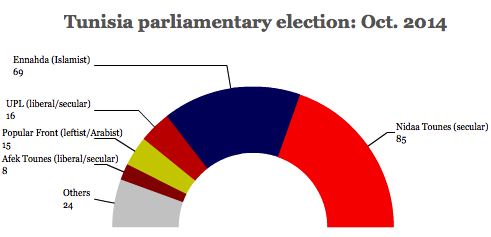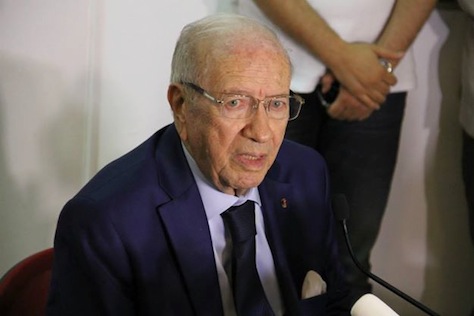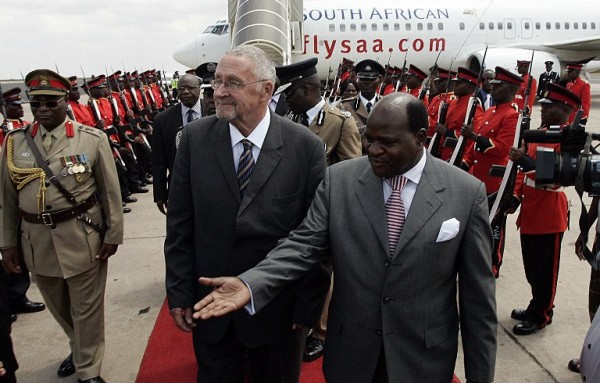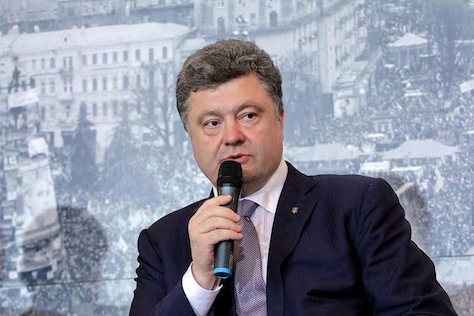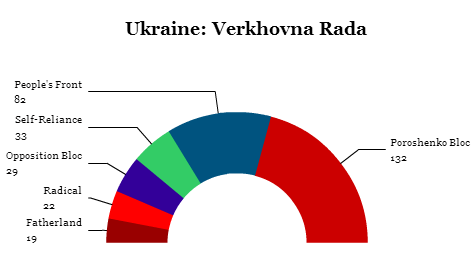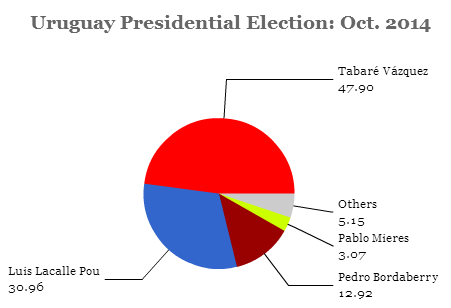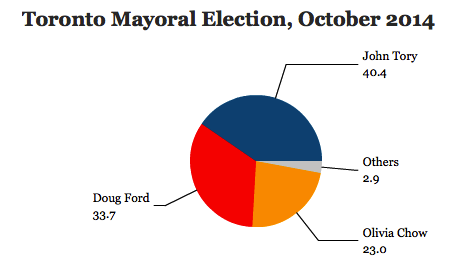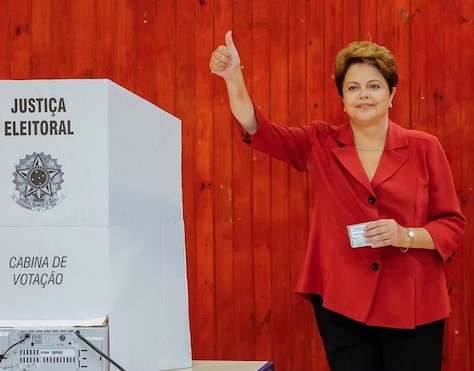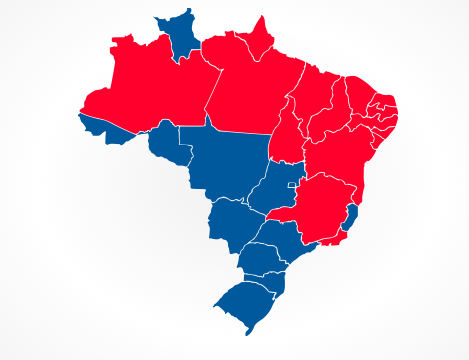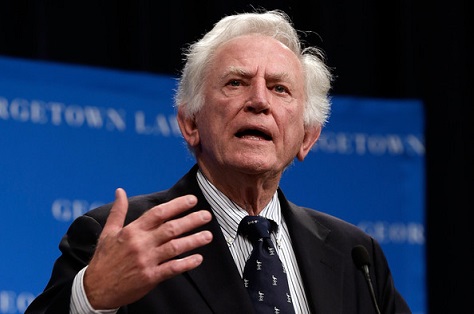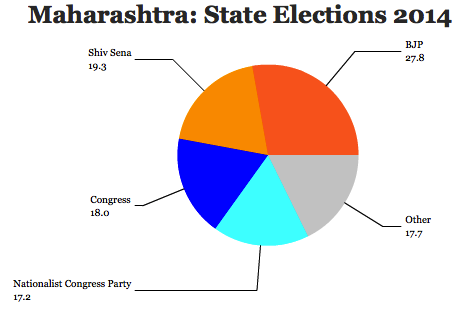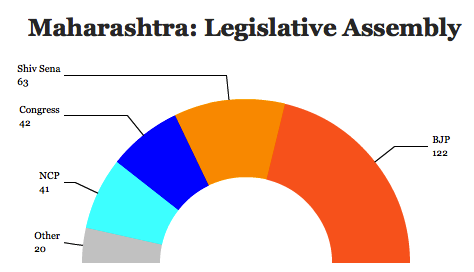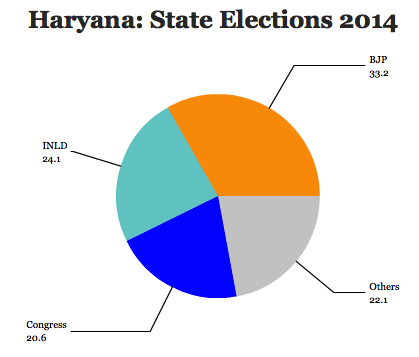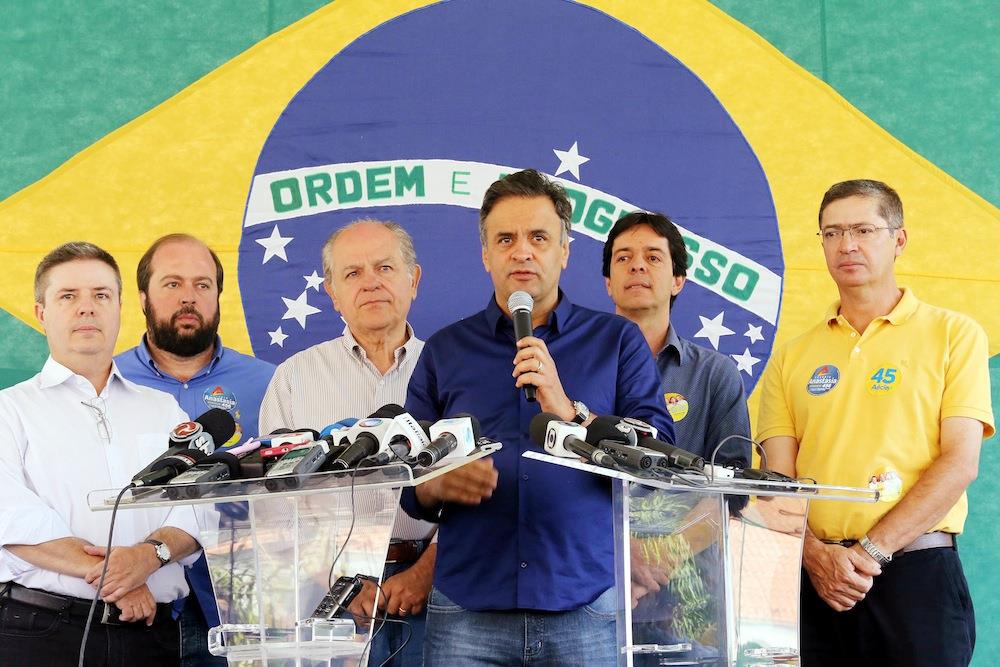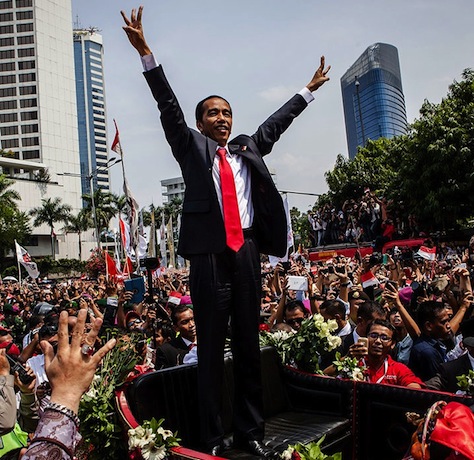
With the inauguration of former Jakarta governor Joko Widodo (‘Jokowi’) as its new president on Monday, Indonesia took a bold step to enshrine a meritocratic democracy, 16 years after the autocratic Suharto regime fell under the strain of the Asian currency crisis. 
It represents, after all, the first transition of power between two democratically elected presidents.
Whether Jokowi will succeed as president, however, is yet to be determined. Even though his election was surprisingly harder than expected, bringing material improvements to Indonesia’s infrastructure and social welfare may prove even more difficult. That’s in addition to defending and deepening Indonesia’s nascent democratic traditions and boosting an economy that, while still strong, is showing signs of cooling.
* * * * *
RELATED: What Jokowi’s apparent victory in Indonesia means
* * * * *
Jokowi’s cabinet… TBD
He must finalize the appointments to his cabinet and demonstrate that his administration will be his own. That means he will have to show, through his cabinet, that he can stand up former president Megawati Sukarnoputri, the powerful leader of his party, the Indonesian Democratic Party of Struggle (PDI-P), as well as his vice president, Jusuf Kalla, a former leader of Golkar (Partai Golongan Karya, Party of the Functional Groups) and previously vice president from 2004 to 2009.
Intriguingly, the delay in the announcement derives from Jokowi’s determination to vet his cabinet picks through Indonesia’s anti-corruption commission. That could be a gentle way of respecting his allies by appointing old-guard figures close to Megawati and Kalla on the initial list without ultimately naming them ministers. It’s a canny approach, and it may result in a widely technocratic government without the taint of backroom Indonesian corruption or ties to autocratic Suharto-era controversies.
A robust Prabowo-led opposition
But once Jokowi names his cabinet, he’ll still face a united opposition in the Indonesian legislature, where the feisty ‘Red-White coalition’ controls more than 60% of the seats in the Dewan Perwakilan Rakyat (DPR, People’s Representative Council), the lower house of the Indonesian legislature, after April’s legislative elections. The Red-White Coalition is, for now, in no mood for conciliatory gestures, and its most strident members are already indicating that it will mount a strong opposition to Jokowi.
The most prolific member of the opposition forces is Prabowo Subianto, the former Suharto-era general (and former Suharto son-in-law) who very nearly defeated Jokowi in the July presidential election. The leader of the nationalist Gerindra (Partai Gerakan Indonesia Raya, the Great Indonesia Movement Party), Prabowo narrowed a wide gap with Jokowi over the summer by espousing popular protectionist ideas and projecting himself as a strongman. Despite Jokowi’s humble roots — a first for an Indonesian leader — cosmopolitan voters increasingly warmed to the aristocratic Prabowo, despite concerns over his spotty human rights record during his military career.
The opposition also includes Golkar (for now), which has been part of government for the past decade under Susilo Bambang Yudhoyono (widely known by his initials, ‘SBY’), and most of Indonesia’s various Islamist parties, which often forced Jokowi’s predecessor to take a softer line on the rise of Islamic fundamentalism across Indonesia in the past decade.
Most immediately, the coalition passed a law revoking the right for democratic elections for local mayors and governors. Though SBY effectively revoked the law temporarily, Prabowo and his allies, many of whom have voiced doubts about direct elections at the national level as well, may try to reintroduce the bill.
Jokowi has also indicated that he will reduce fuel subsidies that consume around 20% of the public budget. As the global price of oil continues to drop, however, it’s far from certain that the Prabowo-led opposition will deliver the votes (at least without significant concessions) that would inflict at least an initial shock on many of their supporters.
Golkar leadership battle could be a gamechanger
Notwithstanding the bleak outlook for Jokowi’s reform agenda, there’s a potential game-changer on the horizon.
That’s because Golkar, which ultimately backed Prabowo in the presidential election (despite Kalla’s joining Jokowi’s ticket), remains splintered. Its current leader Aburizal Bakrie will face a leadership election that he could easily lose. Aburizal’s initial 2014 presidential hopes crumbled under the charisma of both Prabowo and Jokowi, and Aburizal himself remains politically unpopular due to a scandal involving one of his business’s roles in deadly mudslides.
That leadership election, which is supposed to occur next April but could be moved forward, will almost certainly be a proxy battle between Aburizal and Kalla (who isn’t expected to contest the leadership himself). If Aburizal or former industry minister M.S. Hidayat win, Golkar will likely remain in opposition.

But if another leadership frontrunner, former welfare minister and Kalla ally Agung Laksono (pictured above) wins, Golkar could leave Prabowo’s Red-White coalition and join Jokowi’s government instead.
Right now, Jokowi’s coalition holds 247 seats in the 560-member DPR. But if Golkar delivers its 91 seats to Jokowi, the new president would suddenly control a hefty majority. Golkar, which controlled the country during Suharto’s three-decade reign, is a party of entrenched interests, but it’s far more pro-business than Prabowo and Gerindra, and its switch from opposition to government would vastly improve the outlook for significant reform.
There’s almost nothing that would change the trajectory of Jokowi’s administration more than a friendly Golkar leadership change.
Accordingly, it will be worth examining the ultimate cabinet members for signs that they have ties to leading Golkar figures, especially those close to Kalla. If so, it could easily presage Golkar’s eventual turn into government.
![]()
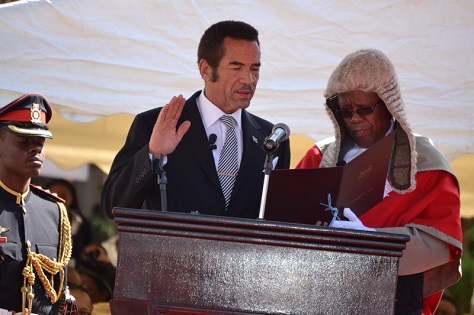
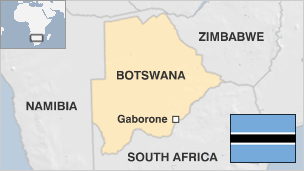
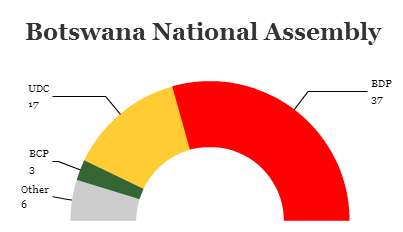
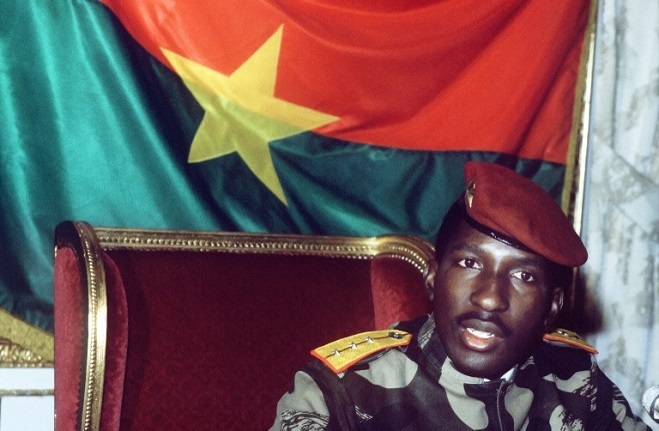 Photo credit to Pascal George/AFP.
Photo credit to Pascal George/AFP.
